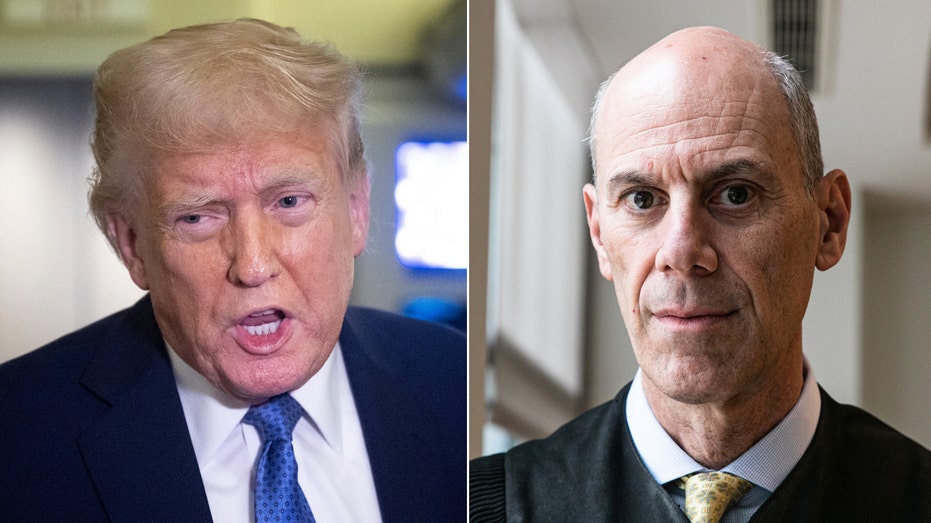Bush DOJ Lawyer Urges Trump Administration to Avoid 'Terrible Mistake' in Judicial Standoff

Sarah Johnson
March 22, 2025
Brief
Former Bush official John Yoo warns Trump administration against defying court orders amid legal battles over deportation and executive authority, highlighting risks to U.S. judicial integrity.
A former Bush administration legal heavyweight is sounding the alarm over the Trump administration's escalating battle with the judiciary, warning against what he describes as a 'terrible mistake.'
John Yoo, Distinguished Professor of Law at the University of California at Berkeley and former deputy assistant attorney general under President George W. Bush, cautioned that defying judicial orders could have grave consequences for the legal system. "I worry that there might be some people in the administration who would actually like to defy a judicial order. Which I think would be a terrible mistake," Yoo said in an exclusive interview.
At the heart of the controversy is President Donald Trump's use of the Alien Enemies Act for deportation flights, a policy that's drawn more than a dozen injunctions from courts nationwide. These include challenges to Trump's birthright citizenship reforms and broader Department of Government Efficiency (DOGE) initiatives. Critics of the judiciary from within the GOP have labeled these judges as "activists" trying to undermine executive authority.
Yoo drew a stark historical parallel, noting that defiance of a judicial order has occurred only once in U.S. history—during Abraham Lincoln's presidency at the onset of the Civil War. "It's almost something that really should only happen when the existence of the country is at stake," Yoo explained, adding that disregarding judicial decisions risks rendering courts powerless and shaking the very foundations of the legal system.
The Trump administration, however, insists it has stayed within legal bounds. U.S. District Judge James Boasberg recently blocked deportation flights of suspected gang members to El Salvador for 14 days. The White House pointed out that the judge's written order came after two planes carrying deportees had already taken off, adding that a third plane, which departed later, carried no deportees under the Alien Enemies Act.
White House press secretary Karoline Leavitt defended the administration's actions, stating, "All of the flights that were subject to the written order of the judge took off before the order was pushed in the courtroom. And the president is well within his Article II power and his authority under the Alien Enemies Act to make these decisions." She further criticized Judge Boasberg, calling it "egregious" for a single district judge to dictate deportation policy.
Adding to the legal complexity, the administration has argued that Boasberg's verbal order, issued just before the written one, is not enforceable. Legal experts like Josh Blackman, a constitutional law professor at South Texas College of Law Houston, have echoed concerns about judicial overreach. "Judges are losing sight of the fact that they are a coequal, and not superior, branch of government," Blackman remarked.
Yoo himself acknowledged the unprecedented nature of this legal clash, describing it as "an exercise of judicial power in response to an unprecedented claim of authority by the president." However, he also noted that verbal orders have held legal weight in certain circumstances, adding, "That's playing a little cute, is what appears to have happened here. But maybe that's the case."
Meanwhile, tensions escalated during a Friday hearing, where Judge Boasberg accused DOJ lawyers of being "disrespectful" in their filings, prompting the administration to accuse him of a "judicial fishing expedition." The standoff shows no sign of easing, and the stakes couldn't be higher for both the judiciary and the executive branch.
Topics
Editor's Comments
It's wild how this case feels like a legal tug-of-war on steroids. You've got historical comparisons to Lincoln, which is some heavy stuff, and then the Trump administration claiming they're within their rights while calling a judge out for overstepping. The irony here is thick—activist judges vs. an administration pushing boundaries. It's like watching two sides play chess on a board that might break any second.
Like this article? Share it with your friends!
If you find this article interesting, feel free to share it with your friends!
Thank you for your support! Sharing is the greatest encouragement for us.



